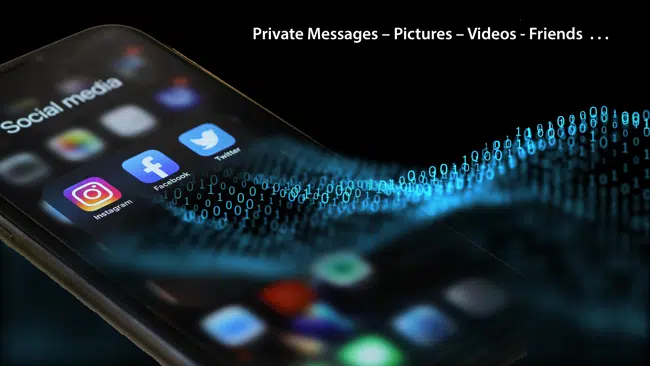Why Social Media Evidence is So Important
The explosion of social media means people are sharing and storing greater amounts of information on different platforms. Frequently, this information is key evidence in family, employment, or other business litigation. When building a case, we forensically collect and preserve this social media evidence from the array of social networks used by your spouse, employee, or business partner.

Explore Our Social Media Evidence Packages
Social Media Forensics
Our forensics experts will find, collect, preserve, and produce your social media evidence. Our forensic procedures ensure that your social media evidence remains admissible in court.
For example, consider a spouse who posted significant amounts of text, photos, videos, and other information online. You might find relevant messages they posted on Facebook, Google+, Tinder, or even photos on Photobucket and Flickr.
In fact, the wealth of information is such that Facebook’s legal staff have affirmed they receive more subpoenas for information related to family law cases each year than for any other area of the law.
Social Media Investigations
Of course, social media evidence comes from more than just social networking sites. It also includes blogs, message boards, chat rooms, online forums, and other, similar sites. Some forums have more privacy safeguards than others, depending on who they expect might or might not see the information. Social media sites are happy to cooperate with legal investigations in cases where probable cause is clear and present, or when subpoenaed to do so.
When building a case, you can collect and review data from the array of social networks used by your spouse, such as:
- Blogger
- CBS Sports
- craigslist
- Dailymotion
- Digg
- Evite
- familylink
- Flickr
- Google+
- Hulu
- IGN
- JibJab
- MetaCafe
- MTV
- myspace
- Netflix
- Photobucket
- YouTube
Can Social Media Be Used as Evidence?
Yes, social media posts, chats, and other content can be used as evidence in court. However, remember that other rules of evidence still apply, including relevancy and authenticity.
